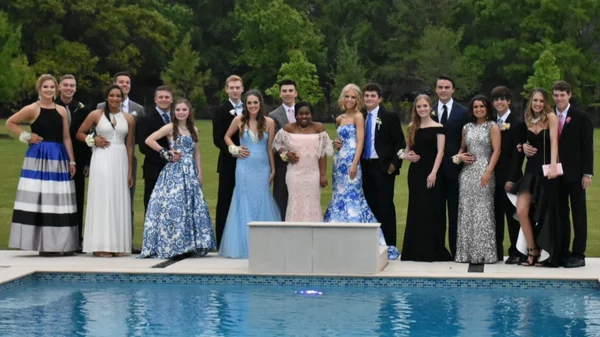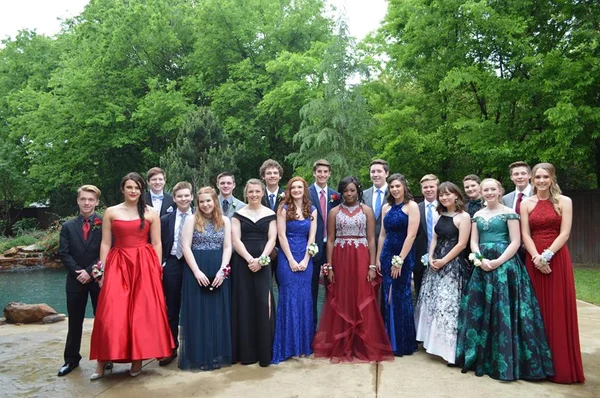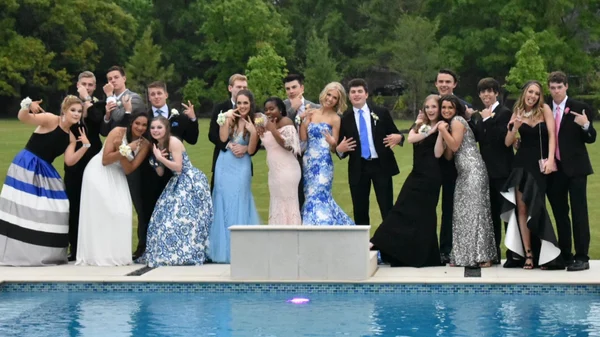Why We Don’t Have a Prom

When you think back on your school prom, do you have memories of awkwardness, expense, or insecurity? When I went to my prom, I didn’t know how to dance, the music was not even really conducive to dancing, and the whole evening was kind of expensive. Because I didn’t know how to dance, I felt very self-conscious all night. I wish my experience had been more like what our students have at Covenant. And even though my prom was thirty years ago, I still hear stories today about proms that make me grateful for the CCA experience.
If anyone asks me if our school has a prom, I tell them we don’t. Did you know the word Prom comes from Promenade? The Cambridge dictionary defines promenade as “to walk slowly along a street or path, usually where you can be seen by many people, for relaxation and pleasure.” Promenade is also known as a dance move, found in dances such as the English Country dance or square dances, which is a basic move similar to the walk. There is a formality, gentility, and civility to the word/action. So how did the contemporary Prom of today get so far away from the original? How did Prom move so far from gentile dance to just movement?
As a classical Christian school, we made a decision many years ago to go a different route, not because we are against dancing or having fun, but because we believe in a greater purpose. We believe in the importance of looking for beauty, goodness, and truth in everything we do. Therefore, our school introduced a dance we call Spring Formal. Each year we hire a professional dance instructor and schedule dance lessons for our students to learn formal dances like the waltz, foxtrot, swing, and salsa.

At Covenant, we believe instruction in formal dance is not only beneficial to our students’ future, it also aligns with our mission. In addition to experiencing joy and community with their classmates, students are learning a beautiful skill, preparing for future events such as college balls or galas, . Rather than following the worldly culture and aiming to be “just like everyone else”, we feel the format of our dance raises the standard and sets us apart.
We start the process with dance and etiquette instruction for our 9th graders with Cotillion lessons followed by an evening dance and dinner. And we continue building the instruction with our 10th, 11th, and 12th graders for Spring Formal. Not only do our students learn formal dances, they are also learning to step out of their comfort zone, interact in appropriate ways with the opposite sex, develop important social skills, and enjoy getting all dressed up. Furthermore, we include our students in the planning of our Spring Formal. They are involved in theme planning and budgeting the cost of the event, which teach some very important leadership skills that will benefit our students further down the road.

While our Spring Formal may not match the world’s standard of fun, we value the boldness it takes to do something different from what the world is doing. When we witness the smiles on our students’ faces as they walk out the door, and hear them talk about the fun they had, we know we have created an event which they appreciate and one that honors the Lord.

